Our editors independently select these products. Making a purchase through our links may earn Well+Good a commission
9 bloat-banishing salt swaps you probably have in your pantry right now
These go-to spices wlll help you kick that bloated feeling by shaking the salt habit. And P.S.: Low-sodium doesn't have to mean low-flavor.
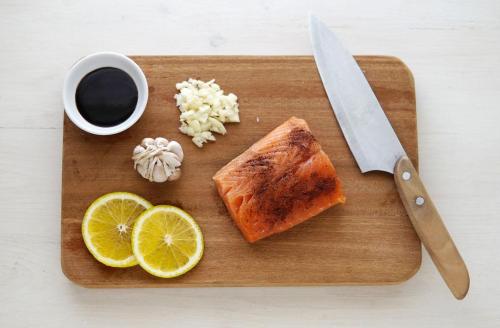
Unlike added sugar, salt is something you do need in your diet—it’s actually a crucial electrolyte for the body. So yes, sodium is a good thing, in moderation. But if you’re ordering takeout several times a week or eating processed foods (even the ones from the “healthy” aisle), you’re probably getting way too much.
“The average US adult takes in almost three times [the recommended] amount,” says integrative nutritionist Karina Heinrich. According to guidelines from the Centers for Disease Control and Prevention, healthy adults should consume no more than 2,300 milligrams of sodium per day—but Americans are eating 3,400 milligrams a day, on average. That’s more than twice the amount Heinrich considers an ideal daily amount—she advises sticking to 1,500 milligrams. “Eating too much salt can potentially raise blood pressure, increase the risk of heart disease, stroke. and stomach cancer, and cause major water retention.”
The problem with too much salt intake is that your kidneys have to work extra hard to keep up with the excess sodium you put in your bloodstream. “The body holds onto water in an effort to dilute the sodium out,” says Heinrich. Not only does this lead to bloating, the added fluids and blood volume cause your heart to have to work even harder, she says.
That’s the bad news. The good news? Most of the time when we overdo it with salt, it’s because of sodium-packed processed foods or restaurant foods, not necessarily from the salt shaker. So if you’re willing to cook at home, and then add a few pantry swaps on top of it, you can dramatically lower your sodium intake. Bonus: You’ll keep your taste buds as happy as your (now bloat-free) body.
“There are so many fantastic spices and herbs to season your meals so you won’t even miss the salt,” says Heinrich. “Plus, most are rich in nutrients and medicinal properties that taste great and are actually good for you.” Try some of the delicious suggestions below, and you’ll shake your salt habit in no time.

Cinnamon
Cinnamon is a basically a wonder spice. In addition to helping with disease prevention, it’s also a great natural sugar alternative—everyone who’s ever sprinkled cinnamon on top of their oatmeal instead of brown sugar can attest to that. And guess what? It’s also a great salt alternative. “Cinnamon is amazing when added into drinks, baked goods, grains, sprinkled on fruits and vegetables, and even on meals like sweet potato fries,” says Heinrich.
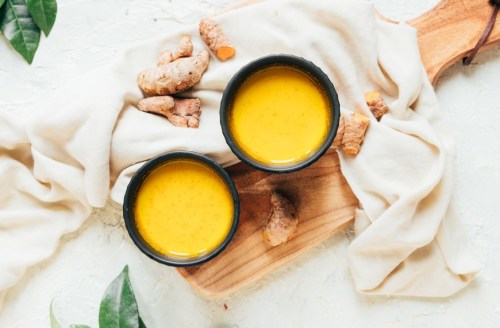
Turmeric
In addition to its inflammation-busting, gut-nourishing benefits, turmeric is a great spice to turn to when you’re looking for salt alternatives. Heinrich says, “turmeric is delicious sprinkled on eggs and chicken.”
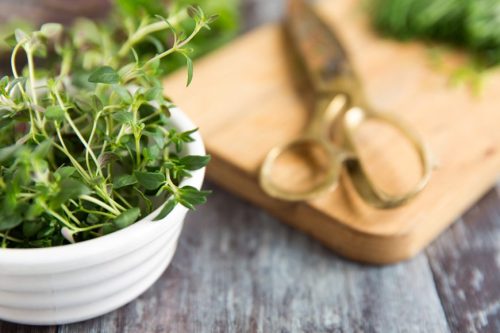
Oregano
Oregano doesn’t just make for a great pizza topper—it’s also an excellent salt alternative because it adds a layer of flavorful, distinctive seasoning. “Oregano is ideal with sauces, proteins, and grains,” Heinrich says.
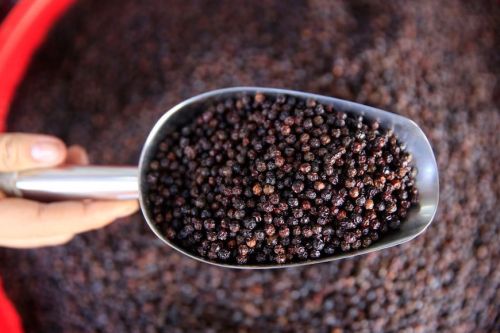
Black pepper and cayenne
If you’re look for ways to make soups, grilled veggies, or meats more exciting, fill them out with black pepper and cayenne pepper—and hey, throw some bay leaves and thyme in there while you’re at it. “Experiment!” says Heinrich. “With flavorful spices like these, you won’t even miss the salt.”
Kelp granules
Kelp granules are sea vegetables that make for an excellent salt alternative. As a nice bonus, kelp granules are packed with vitamins and minerals. “Kelp granules are rich in vitamins, iodine, calcium, magnesium, B vitamins and even tastes similar to salt,” says Heinrich. “Kelp can be added to grains and soups.”
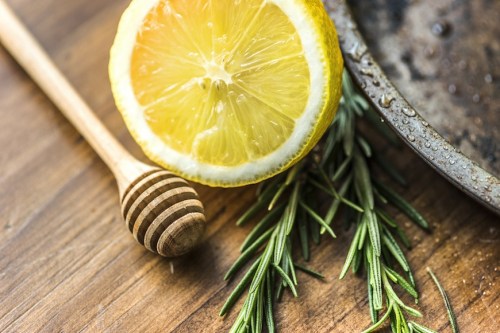
Lemon juice
Ah, lemon juice: Is there anything it can’t do? It’s a great source of vitamin C, and it’s also a top-notch salt alternative because it makes everything taste better by bringing out the natural flavors of whatever you’re eating. “Lemon juice can also be a wonderful salt substitute because it enhances spicy foods,” adds Heinrich.
Sunflower seeds
If you’ve ever noshed on sunflower seeds, you know they can make an excellent snack on their own. They’re also ideal when you’re looking for a salt alternative. “Sunflower seeds can be sprinkled on just about any meal to add a kick of flavor,” says Heinrich. And they can multitask: You can sprinkle them on salads to add crunch to an otherwise bland salad, or blend them into a yummy nut butter.
Nutritional yeast
Nutritional yeast has long been a staple in vegans’ pantries, mostly because it makes a stellar cheese alternative. But it’s also a great option when you’re looking for a reliable salt swap. “It has such a nice rich and ‘cheesy’ flavor,” explains Heinrich. “It can be added to grains, sauces and even popcorn.”
Liquid aminos
If you’re a sushi lover who constantly finds yourself reaching for the soy sauce, liquid aminos are a great salt alternative—and not just for a kick of flavor on your spicy tuna roll. “Liquid aminos are a wonderful soy sauce alternative that can be added to vegetables, grains, proteins and sauces,” says Heinrich.
Long story short? A little bit of salt is okay, but too much can hurt your health. (And the average American falls decidedly in the “too much” camp right now.) Luckily, there are tons of great ways to keep your food flavorful and interesting without adding it to your recipes—so that living your best low-sodium life can still be just as delicious.
Sign Up for Our Daily Newsletter
Get all the latest in wellness, trends, food, fitness, beauty, and more delivered right to your inbox.
Got it, you've been added to our email list.










